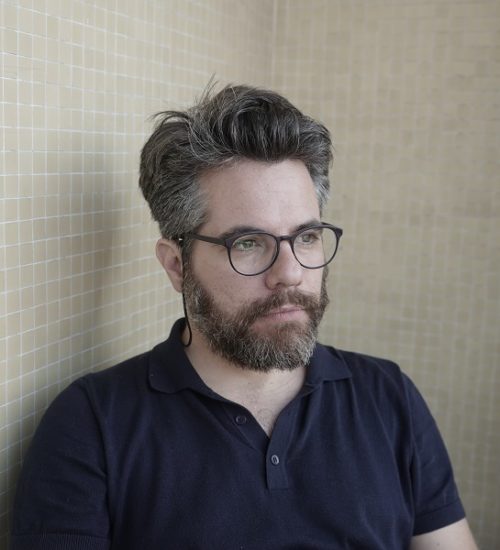Miguel-Manso created a singular space within the most recent Portuguese poetry: he brings back an effect of estrangement which most poets of his generation seem to have forsaken (except perhaps Nuno Brito). He uses language with a most chiselled technique and presents to the reader language games, fine irony or elegiac graveness through the most unexpected solutions, never losing sight of the constant tension between opaqueness and transparency.
Rui Lage
Miguel Manso was born in Santarém. He lived in Almeirim, Lisbon and, presently, in Sertã, where he is one of the co-directors of the cultural project Casa do Gigante – Associação cultural Mandriões no Vale Fértil. He trained in drawing and documental sciences and has directed, alongside João Manso, the films Bibliografia (2013) and A Passagem dos Elefantes (2022). He works as a karaté instructor. His first book was published in 2008, and so was his second… and so forth. He writes and doesn’t write poetry full time.
Poetry books since 2000: Da série Os carimbos de Ghent: Contra a manhã burra (2008), Quando escreve descalça-se (2008), Santo subito (2010), Ensinar o Caminho ao Diabo (2012), Um Lugar a Menos (2012); Aqui Podia Viver Gente (2012), Tojo: Poemas Escolhidos (2013), Supremo 16/70 (2013), Persianas (2015), Estojo (2020).
